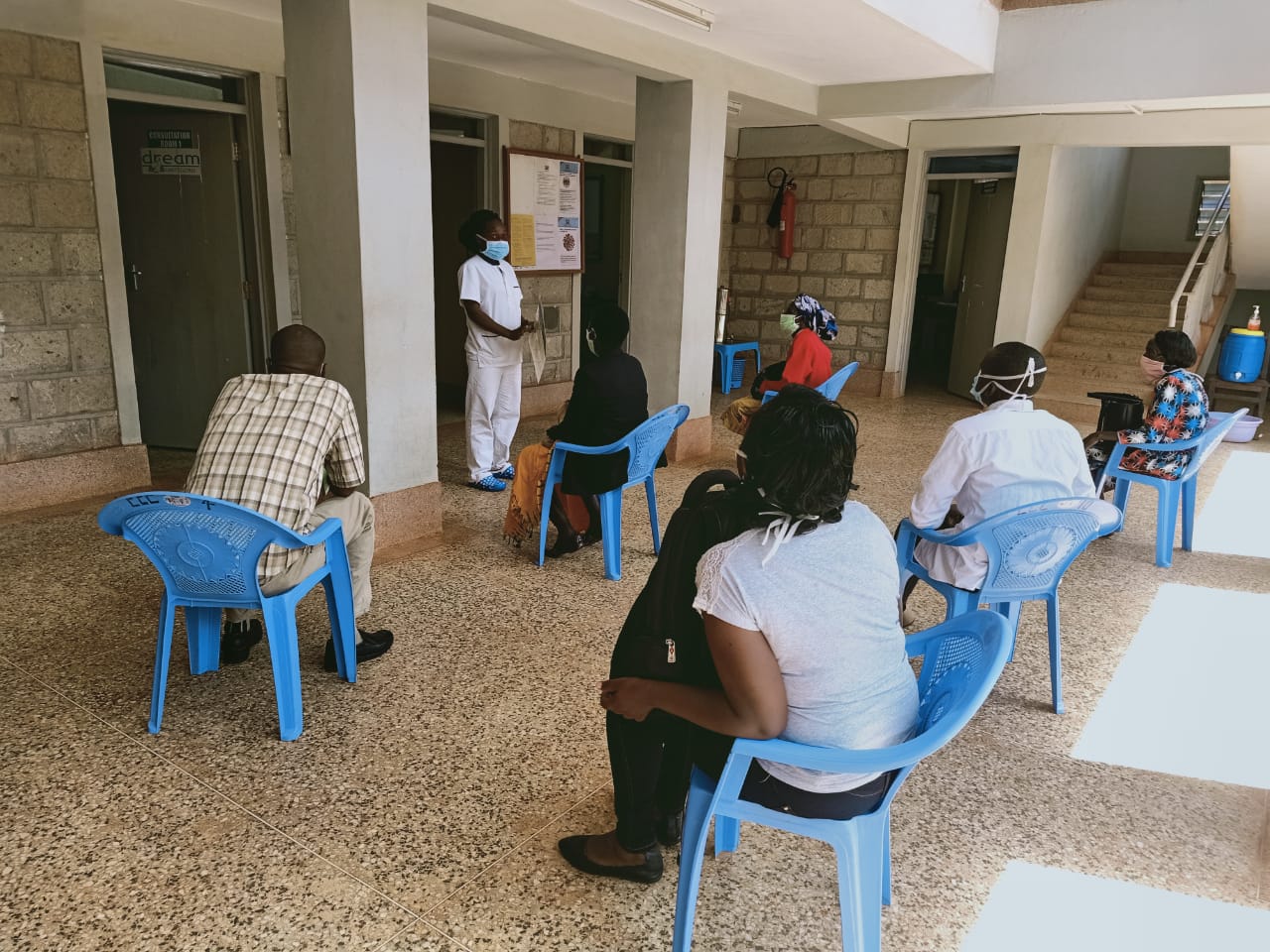Covid-19 in Kenya, the DREAM centres protect people from the pandemic
The testimony of Benjamin Welu, the coordinator of the healthcare centres of the Eastern Sites, which are currently supported by the Italian Agency for Development Cooperation as part of the project “Together with the Global Fund to end the HIV and TB epidemic in Kenya”.
Coronavirus is also affecting Kenya. This country has the strongest economy in East Africa, it has a population of over 47 million people and it recorded its first case of covid-19 on March 13th, 2020. Since then, the number of infections have increased at a rate of over 50 cases a day, with peaks of 70 cases a day in the last two weeks. According to the Kenyan Ministry of Health’s website, the country registered 1,348 confirmed cases and 52 deaths as of May 26th, and around 64,000 tests had been carried out. Apart from in Meru and Nairobi counties, where some cases have been recorded, no cases have been reported in the other areas where DREAM operates. This is the testimony of Benjamin Welu, the coordinator of the DREAM centres in Kenya.
Dr. Welu, how is the population reacting?
With the onset of the covid-19 emergency, Kenya has adopted specific measures to ensure that the citizens are alerted and to curb the spread of the virus among the population. Emergency numbers and awareness raising campaigns are being advertised. The media have provided information on how to prevent infection, they promote hand sanitising, social distancing and the importance of quarantine in the case of exposure to the disease or suspected symptoms.
What is the central government doing?
Everybody’s temperature is taken at the borders between counties and at the national borders. The borders with Somalia and Tanzania have been closed. The infections are traced and everyone who has been in contact with confirmed cases goes into quarantine, as well as people coming from abroad. There are restrictions on international travel and blocks in regions with a lot of new cases, such as the urban area of Nairobi, the coastal region and the North-Eastern counties. Everyone who is employed in non-essential services is working from home and everyone has to wear a mask in public places. All the schools have been closed, as well as the places of worship and prayer. Tests are mandatory for certain categories of workers, like international truck drivers and mass testing has started in areas that have a lot of new cases.
Are there any difficulties in managing the health emergency?
Yes, the social and economic implications of the pandemic have had a negative impact on the prevention measures. At first people took the prevention measures like sanitising their hands, using masks and social distancing very seriously. However, most people have gradually started to ignore some of the warnings. A lot of people wear masks just out of fear of the police, other people have started organising parties at home.
The patients who have to stay at home in quarantine because they may have been in contact with patients who have coronavirus, cannot get food and cannot work. This means people are not motivated to take the test and some people have given a wrong address so they cannot be traced.
Furthermore, blocking some regions has left a lot of people without work and has limited trade. This has led to a shortage of raw food materials and an increase in prices. The government has not been able to meet the needs of the people in the closed off areas. The people who tested positive and should have been in quarantine have started going out to look for food or to go to work: there has been tension and clashes with the police.
Another big problem is the discrimination against people with covid-19 and their families. In some cases that have been reported by the media, people with covid went back after their quarantine and found that their homes had been destroyed, with the intention of making them go and live somewhere else.
What is the role of the DREAM programme in fighting the virus in Kenya?
We are providing appropriate health education and are promoting the preventive measures established by the government. All our centres have organised appointments over several days, to keep the patients distanced and reduce the risk of infection.
In addition, DREAM has purchased protective equipment for the staff and patients who come to the centres with respiratory symptoms, like a cough, or who arrive without a mask. We have installed hand washing points that are available for the patients and the staff, and have provided the necessary disinfectants. The personnel in the centres have been adequately trained to manage suspected cases of covid-19 properly and to follow the government protocols.
How has your work changed since the beginning of the pandemic?
This health emergency has inevitably changed our working lives. All the non-medical personnel started to work part-time and when possible from home in order to minimise travelling to the centres. In addition the working week has been reduced to three days, again in order to minimise the risks. However, people are still afraid: the staff are worried about being infected but also about losing their jobs if the pandemic does not stop.
